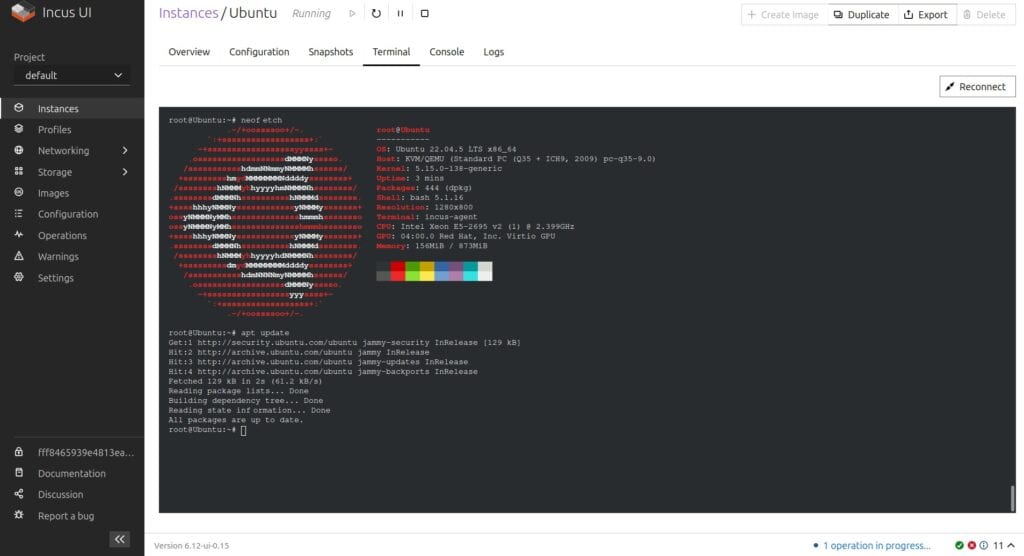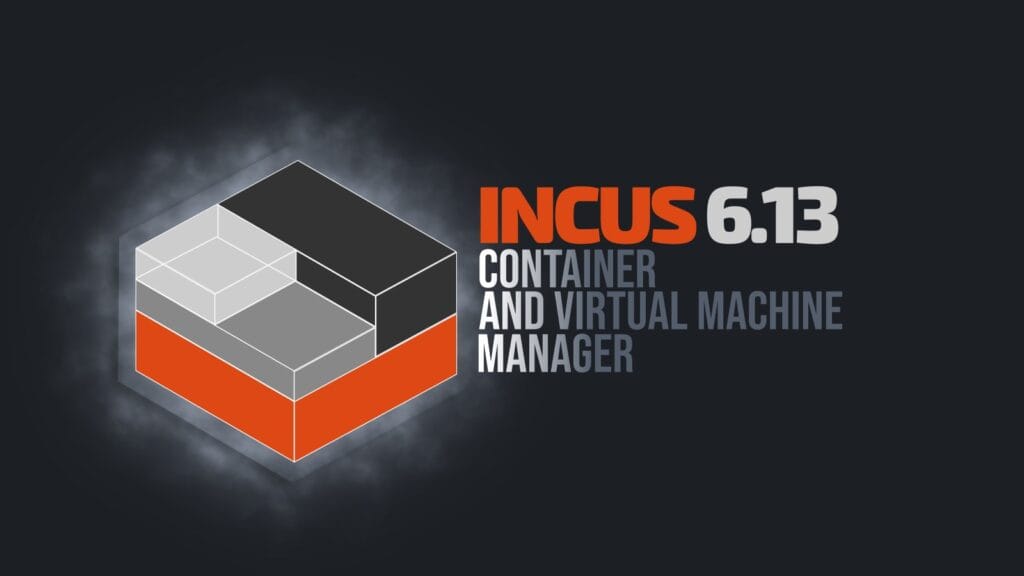The Incus team has just announced the release of version 6.13 of its container & virtual machine manager, bringing improvements across virtual machine management, container migration, networking, and CLI usability.
One of the most notable advancements in Incus 6.13 is the introduction of Windows agent support. The VM agent has been restructured to run on non-Linux operating systems, paving the way for Windows compatibility. Although still in the early stages—largely due to the lack of signed VirtIO drivers for vsock on Windows—Incus cleverly works around this by using HTTPS over the network for agent communication.
This means users can execute commands, retrieve OS details, and transfer files with the Windows VM, provided the VM’s IP is reachable. Setting up the Windows agent involves adding a special disk device that supplies the agent and its configuration, with the option to start it manually or configure it as a service.
Regarding container and VM migration, the incus-migrate tool has received enhancements that make importing workloads more flexible and powerful. It now supports uploading filesystem trees or disk images as new custom volumes, importing additional disks alongside instances, and even importing OVA images directly.

Clustered Incus servers gain the ability to specify the target server or cluster group during migration. This standalone tool is particularly useful when migrating systems not yet running Incus, with static builds available on GitHub.
Storage management also advances with SFTP support on custom volumes. Previously limited to instance storage, SFTP operations like file mounting are now accessible on custom filesystem volumes, marking the beginning of broader file API support for these storage types.
Networking features continue to evolve as well. Incus now offers two new NIC configuration keys—ipv4.address.external and ipv6.address.external—allowing users to specify which IP address should be used for instance, outbound traffic on OVN networks.
Additionally, users can pin gateway MAC addresses on OVN uplink networks via ipv4.gateway.hwaddr and ipv6.gateway.hwaddr, supporting environments with virtual MAC addresses like VRRP.
A noteworthy improvement for virtual machines includes enhanced clock handling. Incus automatically enables the invtsc QEMU option for non-migratable VMs and listens for RTC events to better preserve VM hardware clocks. This leads to improved support for Windows VMs and others reliant on RTC rather than UTC clocks.
Routing configurations for NICs have been refined, too, with new ipv4.host_tables and ipv6.host_tables keys, allowing multiple routing tables to be specified for routed interfaces, enhancing routing flexibility.
Another automation-friendly addition is the ability to preseed certificates in Incus server configurations. This allows automatic certificate provisioning during system setup, a particularly handy feature when deploying Incus OS.
Usability improvements continue with the option to set a default list output format in the CLI configuration file, streamlining command-line workflows. Also, new aliases for commonly used commands like create/add and delete/remove make the CLI more intuitive and scripting-friendly.
Under the hood, Incus has substantially migrated manually coded database functions to an internally maintained code generator covering network ACLs, load balancers, and zones. While extensive testing has been performed, users are encouraged to report any unexpected behavior, as this refactoring may surface subtle issues.
For more information about the Incus 6.13 container and virtual machine manager changes, visit the release announcement or check out the full changelog.
Users are encouraged to try out these new features by visiting the Incus online platform, which provides a hands-on experience with the latest version.
